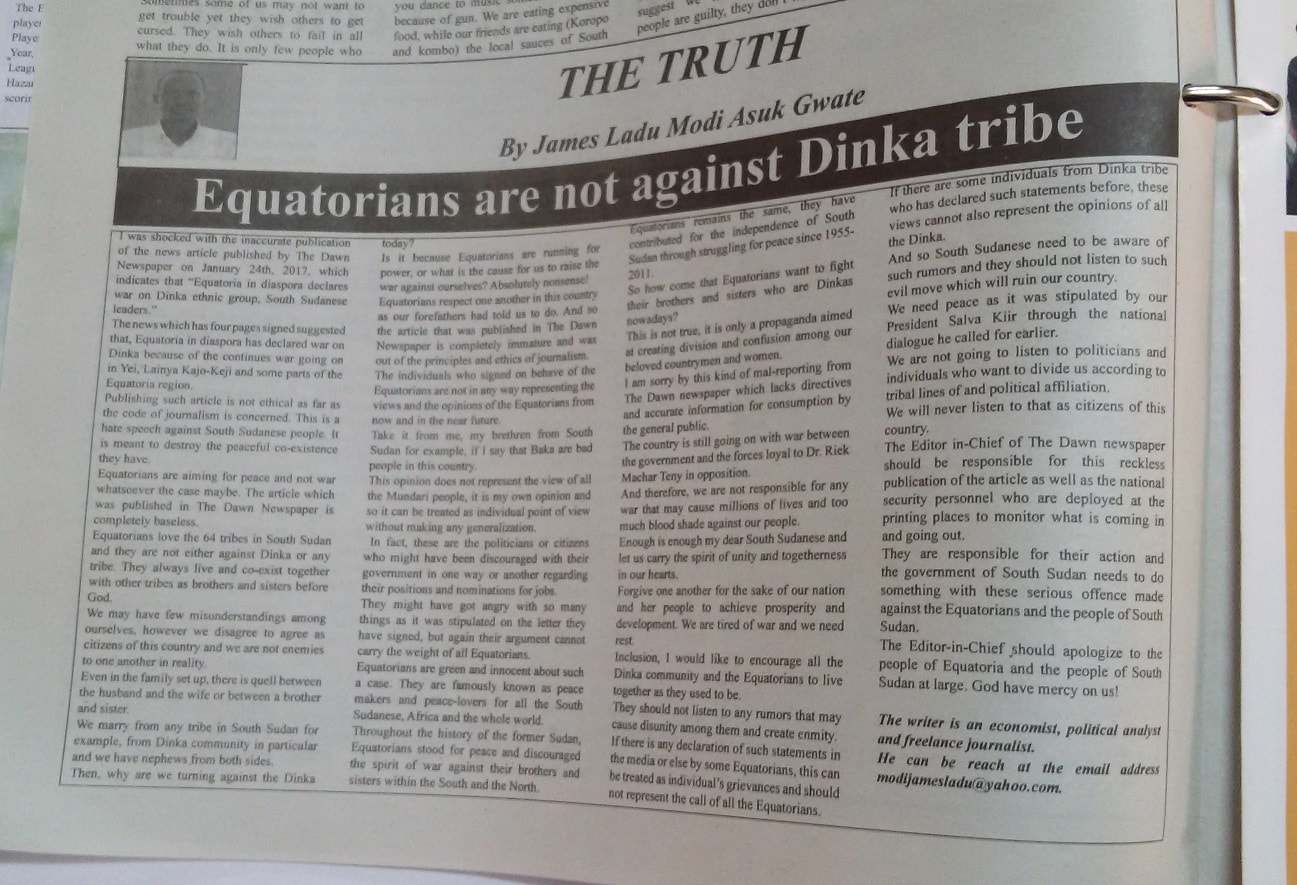It’s the first time Alfred Taban remembers seeing what he would call hate speech on the front page of a prominent newspaper in South Sudan. On Jan. 24, the Dawn, a popular daily newspaper, published an article saying some people from the diaspora of South Sudan’s Equatorian community had declared war on South Sudanese leaders and the Dinka tribe, of which the president is part.
“I was terribly disgusted because I thought, ‘this will not help in the peace process of this country,’” said Taban, a long-time journalist and editor-in-chief of the Juba Monitor. “It was definitely hate speech. Because hate speech is a type of writing that is going to cause one community to hate another one.”
The Juba Monitor immediately took action. Reporters got a response from the presidential spokesman, who said the story was not accurate. Then, they reported on the news a reporter from the Dawn was resigning in protest. With encouragement from their JHR trainer, they ensured the story included the voice of the Dawn’s editor-in-chief responding to the criticism.
Taban also allowed several opinion writers to respond to the story, one of whom equated it to Rwanda’s propaganda press prior to the genocide. The veteran journalist also wrote an editorial challenging the publication of the story and its contents. They did not reprint the hate speech.
“When it happens, people should talk about it,” he said. “This is often how you diffuse situations like this one – when other people talk about it. Many of them when they talked about it, they said, ‘no, these kinds of statements are not good for us, especially at this particular time.”
Violence has continued in South Sudan, particularly in the Equatoria regions in the south of the country. The newspaper has reported that attacks on vehicles on several main roads in the region have targeted and killed both Dinka and Equatorians.
Taban, who is also the chairman of the Association for Media Development in South Sudan, said he also brought the topic to a meeting at the National Editors’ Forum where he challenged the Dawn’s editor on the decision to publish the story.
AMDISS has developed a code of ethics for journalists in South Sudan, which includes guidelines on handling hate speech. Previously most hate speech has been tracked on social media sites. Taban said AMDISS has been working to reduce its prevalence.
“Now it has moved. Instead of being stamped out it is stamping itself on the front pages of prominent newspapers. This is very worrying,” he said. “When a case happens like this, it is good for the editors and journalists to come together and discuss it.”
They plan to do just that in the coming weeks at a meeting so that together the country’s journalists can plan ways to ensure that next time rather than responding after the fact, the hate speech never makes it to print.




